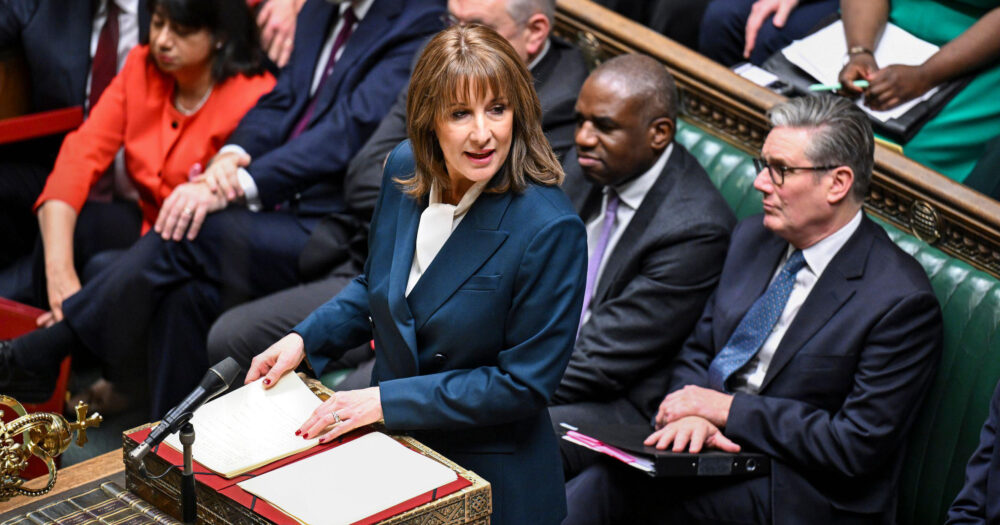Revelation of a £20 billon SEND blackhole has sparked a row between the Department for Education and the spending watchdog and upped the stakes on ministers to fix the system before the government absorbs its soaring costs.
This week’s budget revealed that from 2028, SEND cost pressures will sit on the government’s books, rather than councils, after a “statutory override” allowing authorities to post high needs deficits comes to an end.
The Office for Budgetary Responsibility said the decision could cost the government £6.3 billion in 2028-29, with “no savings” identified to offset this.
Without action, the pressure would rise to over £9 billion by 2030.
The OBR also warned the government has announced no plans to address councils’ existing SEND deficits, expected to reach £14 billion by 2028 – meaning minister face a £20 billion SEND funding timebomb.
‘Treasury forcing the pace’
Sam Freedman, a former government adviser, said this week’s development was “the Treasury basically telling the DfE ‘you are going to do these reforms’ and try and force the pace”.

But a row has erupted over an OBR analysis on the potential impact of the SEND costs.
The organisation originally reported that funding the £6.3 billion entirely from the schools budget would see mainstream per-pupil funding cut by 1.7 per cent.
It later issued a correction – revising the figure up to 4.9 per cent. The OBR did not respond to repeated requests for clarity on how this was worked out.
The Department for Education then issued a public statement on Wednesday evening saying the claim was “incorrect”.
They said it was “clear” that any deficit will be “absorbed within the overall government budget” – not just the education budget.
The projections also did “not account” for the potential impact of planned SEND reforms, due in a delayed white paper in January, government added.
But the intervention has raised the stakes on SEND reform.
Education secretary Bridget Phillipson was even forced to privately reassure MPs on Thursday.
In a letter seen by Schools Week, she said the OBR content “is being presented in a way which is quite misleading”.
Wayne Norrie, CEO of the Greenwood Academies Trust, backed government, adding “leaders need honesty about trade-offs”.
But “what we don’t need is commentary that treats a modelling example as if it were a signed-off decision to squeeze mainstream schools yet again.”
‘Time to come clean’
However, the Conservative opposition seized on the chaos this week, calling for Phillipson to “come clean” about what they call a “hidden £6 billion blackhole”.
Laura Trott, shadow education secretary, added it would lead to “a cut to schools and mass teacher redundancies, or a £6 billion cut to special educational needs provision”.
In her note, Phillipson said she was “disappointed but not at all surprised that the Conservatives have started scaremongering about something that isn’t even happening”.
But publication of the figures ups the pressure on ministers to deliver a solution.
The OBR said having to shoulder SEND deficits is “very likely to result in many local authorities issuing section 114s” – effectively declaring bankruptcy – due to “being unable to set a balanced budget”.
The government is due to set out more detail at the local government finance settlement in December. Councils are urging ministers to write the deficits off.
‘Not a credible plan’
Luke Sibieta, education programme director at the Institute for Fiscal Studies, said the OBR was right to highlight the size of the potential SEND blackhole.
“It is not a credible plan [for ministers] to say that we will figure out how to fund it later. The government is yet to set out plans to reform the SEND system. Indeed, it has kept postponing plans to publish proposals.”
He added government had three options to fill the £6 billion gap.
It could “slow the growth in SEND spending through reforms” though “changes will take time to be felt”. It could top up school funding from elsewhere in government. Or it could reduce mainstream funding to pay for high needs.
“To illustrate the impact of these choices, £6 billion is equivalent to about 9 per cent of the overall schools budget in 2028-29, or about 11 per cent of the mainstream schools budget in that year,” Sibieta’s analysis suggested.
The OBR was pressed on why its figures differed, but did not respond to request for comment.















Your thoughts